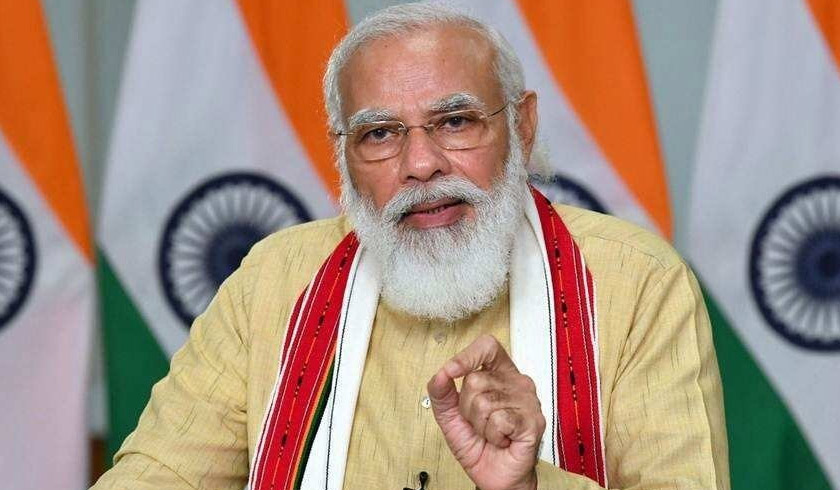Will hold its meeting soon to draw roadmap
Consultations likely to be taken to grassroot level
Sanjeev Pargal
JAMMU, June 28: On the lines of All-Party Meeting (APM) chaired by Prime Minister Narendra Modi, the Delimitation Commission headed by Justice (Retired) Ranjana Prakash Desai is also likely to have consultations with all major political parties of Jammu and Kashmir to take their viewpoint on delimitation of Assembly constituencies in the Union Territory.
The Commission is expected to hold its meeting shortly in New Delhi to draw roadmap of further meetings and other steps required for delimitation of Assembly constituencies in Jammu and Kashmir.
Headed by Desai, the Delimitation Commission has two more Members including an Election Commissioner and State Election Commissioner (SEC) KK Sharma.
Official sources told the Excelsior that the Delimitation Commission has decided to hold consultations with all major political parties of Jammu and Kashmir as only two parties—National Conference and Bharatiya Janata Party (BJP) have representation in the Commission. Only Lok Sabha MPs can be nominated as Associate Members of the Commission, they pointed out.
“The Delimitation Commission has, however, decided to expand its consultations beyond BJP and National Conference and will take all major political parties of Jammu and Kashmir onboard and elicit their suggestions on delimitation of Assembly constituencies including reservation of seats for Scheduled Castes (SCs) and Scheduled Tribes (STs),” sources said.
The political parties which are expected to be called for consultations during a meeting in Jammu and Kashmir by the Delimitation Commission after some time include Congress, People’s Democratic Party (PDP), Bahujan Samaj Party (BSP), Nationalist Panthers Party (NPP), Jammu and Kashmir Apni Party (JKAP), Jammu and Kashmir People’s Conference (JKPC), CPM etc. Barring BSP, all these political parties had been invited to the All-Party Meeting called by Prime Minister Narendra Modi in New Delhi on June 24.
The BJP and NC might also be called for talks though their five Lok Sabha members from J&K are Associate Members of the Delimitation Commission but the NC has so far dissociated itself from the Panel’s proceedings. The NC had boycotted a meeting of the Associate Members called by the Commission in New Delhi in February this year on the ground that it has challenged Jammu and Kashmir Reorganization Act in the Supreme Court under which the Commission was set up. The BJP had attended the meeting, The NC is now having second thoughts over boycott of the Commission and there were indications from the party leadership that it could reconsider its decision once invited for the meeting again. The NC leadership feels that its boycott will give major say to the BJP.
Dr Farooq Abdullah, Mohammad Akbar Lone and Hasnain Masoodi, all three Lok Sabha MPs from Kashmir are three National Conference Associate Members in the Commission while Dr Jitendra Singh and Jugal Kishore Sharma, the two MPs from Jammu region represents BJP in the Panel.
As the Commission wants to take exercise for delimitation of Assembly constituencies to grassroots level, it may even meet the District Development Council (DDC) Chairpersons and other stakeholders during their visit to Jammu and Kashmir.
The Delimitation Commission, according to sources, is expected to hold the meeting of its three official members soon to take call on when to meet the political parties in Jammu and Kashmir besides discussing other issues including data obtained by an Election Commission official from all 20 Deputy Commissioners of the UT recently during a video conferencing.
The Commission has been mandated to delimit the constituencies of the Union Territory in accordance with the provisions of Part V of Jammu and Kashmir Reorganization Act, 2019 and Delimitation Act, 2002.
While splitting Jammu and Kashmir into two Union Territories through the Reorganization Act, the Union Home Ministry had increased Assembly seats of Jammu and Kashmir by seven taking total seats to 114-24 of which are reserved for Pakistan occupied Kashmir (PoK) while election will be held for 90 seats.
Erstwhile State of Jammu and Kashmir had 111 seats including 24 reserved for PoK while elections were held for 87 seats. With creation of Ladakh as Union Territory, four seats of the region were reduced and the Assembly was left with 83 seats. However, with increase of seven seats, J&K UT will have an Assembly of 90 seats. Two Women MLAs will be nominated to the House, which was the position earlier also.
In the previous Assembly, Kashmir had 46 seats, Jammu 37 and Ladakh four.
Delimitation of the Assembly constituencies was last held in 1994-95 during the President’s Rule when seats of the erstwhile State Assembly were raised from 76 to 87. Jammu region’s seats were increased from 32 to 37, Kashmir’s from 42 to 46 and Ladakh’s two to four. However, the delimitation was freezed in 2002 by the then National Conference Government headed by Dr Farooq Abdullah in lines with the decision taken by then Central Government headed by Atal Bihari Vajpayee.
Elections to the Legislative Assembly will be held only after delimitation of Assembly constituencies is completed.
The delimitation of Assembly seats has become necessity as it would be treated as new Assembly altogether with reservation for Scheduled Castes and Scheduled Tribes. The Scheduled Castes enjoyed reservations in the previous State Assembly also where seven constituencies were reserved for them including Chhamb, Domana, RS Pura, Samba, Hiranagar, Chenani and Ramban, all in Jammu region, while STs had been denied political reservations.
“The STs will get political reservations for the first time in the history of Jammu and Kashmir,” sources pointed out.
It may be mentioned here that seats reserved for SCs had to be rotated after every two terms but in the erstwhile J&K State Assembly, four elections were held on the same reserved seats without rotating them. The Delimitation Commission could now reserve seats in different areas for the SCs, they said.
Trending Now
E-Paper


